Chaos Game
- posiziona 8 punti in senso orario intorno a un quadrato
- il prossimo punto colorato è a metà tra quello attuale e uno scelto a caso
- la scelta è guidata in un certo sottoinsieme dei punti
+0 +1 +2
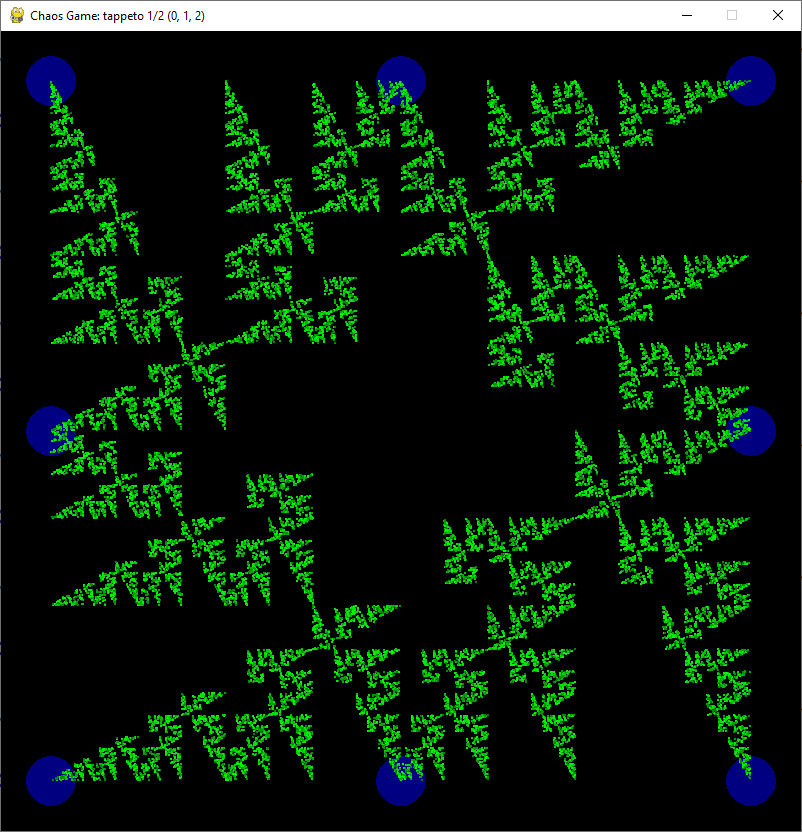
import random # randint()
import pygame
SCELTA=(+0,+1,+2)
WIDTH =800 # Larghezza
HEIGHT=800 # Altezza
SPAZIO=50 # Cornice vuota
RAGGIO=1 # Punto colorato
FRAME1=2 # Numero frame al secondo
FRAME2=500 # Numero punti per ogni frame
PUNTI=[]
PUNTI.append(( SPAZIO, SPAZIO))
PUNTI.append((WIDTH/2 , SPAZIO))
PUNTI.append((WIDTH-SPAZIO, SPAZIO))
PUNTI.append((WIDTH-SPAZIO, HEIGHT/2 ))
PUNTI.append((WIDTH-SPAZIO, HEIGHT-SPAZIO))
PUNTI.append((WIDTH/2 , HEIGHT-SPAZIO))
PUNTI.append(( SPAZIO, HEIGHT-SPAZIO))
PUNTI.append(( SPAZIO, HEIGHT/2 ))
NUM=len(PUNTI)
pygame.init()
screen=pygame.display.set_mode((WIDTH, HEIGHT))
pygame.display.set_caption("Chaos Game: tappeto 1/2 " + str(SCELTA))
clock=pygame.time.Clock()
# Disegna i punti di base
for x,y in PUNTI:
pygame.draw.circle(screen, (0,0,128), (x,y), 25)
indice=0
xx,yy = PUNTI[indice]
ANCORA=True
while ANCORA:
# Gestione degli eventi
for ev in pygame.event.get():
if(ev.type == pygame.QUIT):
ANCORA=False
# Tono di verde
PENNA=(0, random.randint(128,255), 0)
# Un certo numero di punti
for i in range(FRAME2):
ii=random.choice(SCELTA)
indice=(indice+ii)%NUM
x, y=PUNTI[indice]
xx=(xx+x)/2
yy=(yy+y)/2
pygame.draw.circle(screen, PENNA, (xx,yy), RAGGIO)
pygame.display.flip()
clock.tick(FRAME1)
pygame.quit()+0 +1 +7
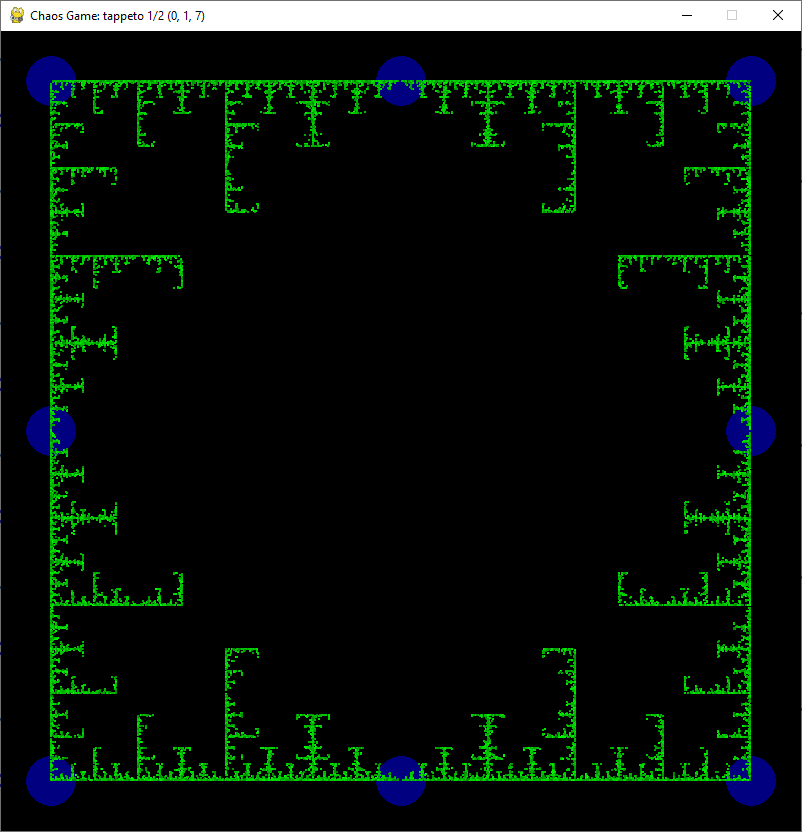
+0 +2 +4
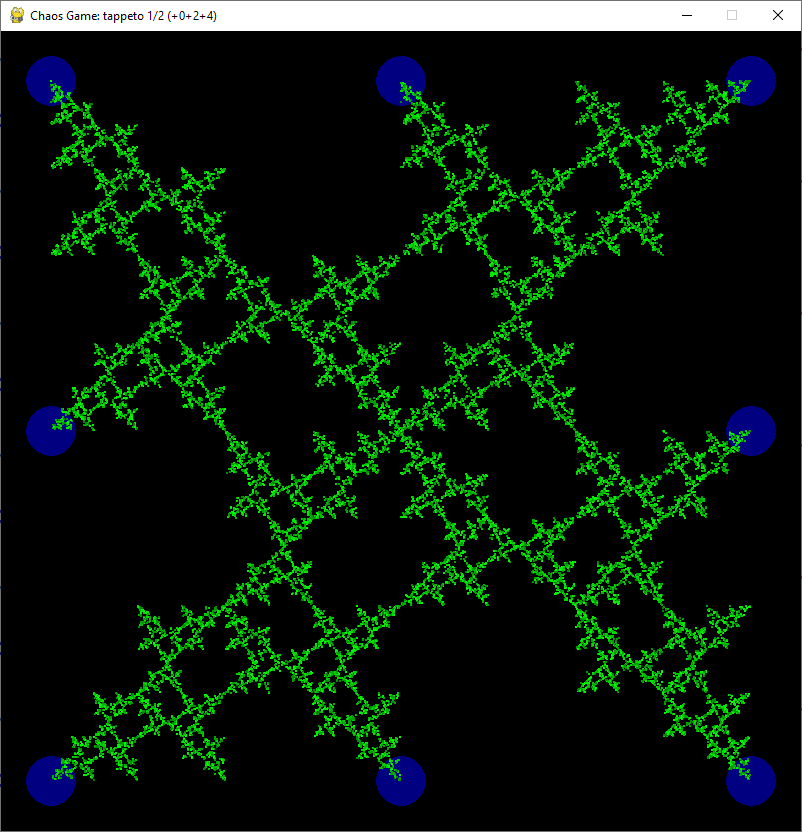
+0 +2 +7
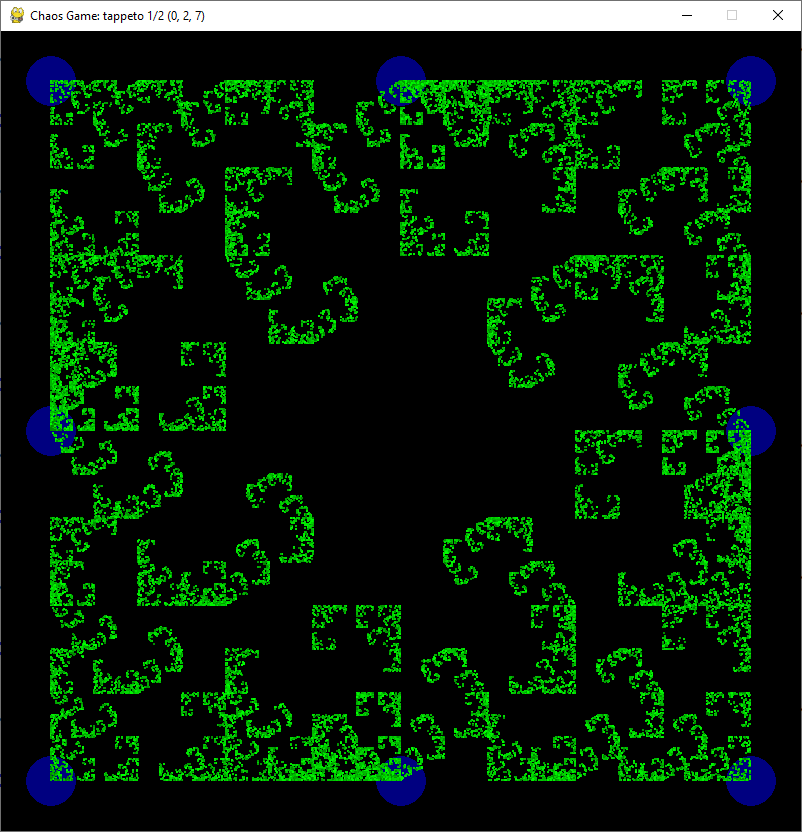
+1 +4 +7
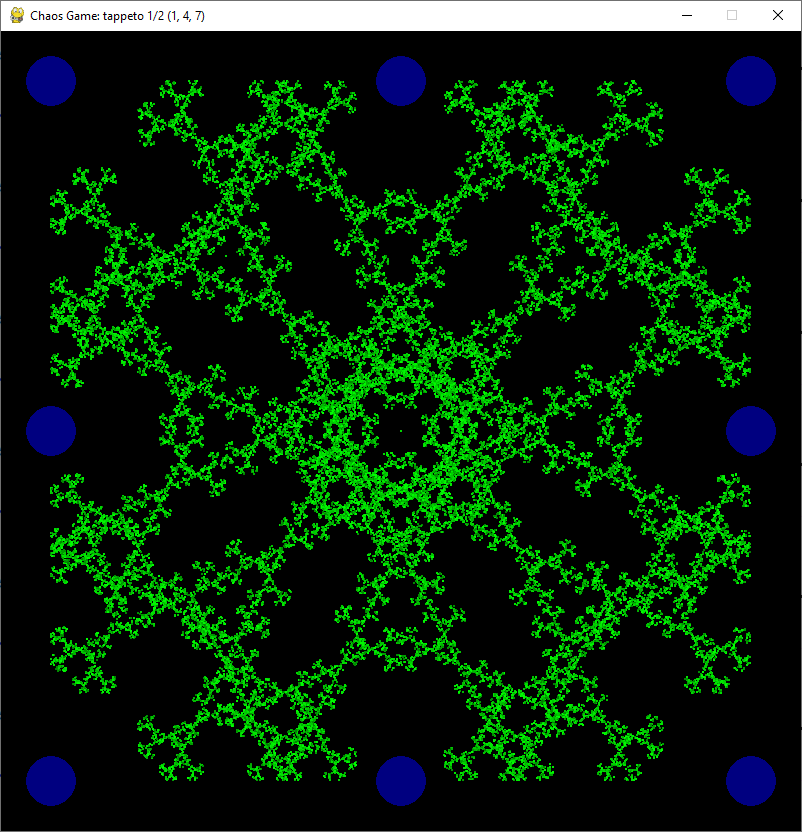
+2 +4 +6
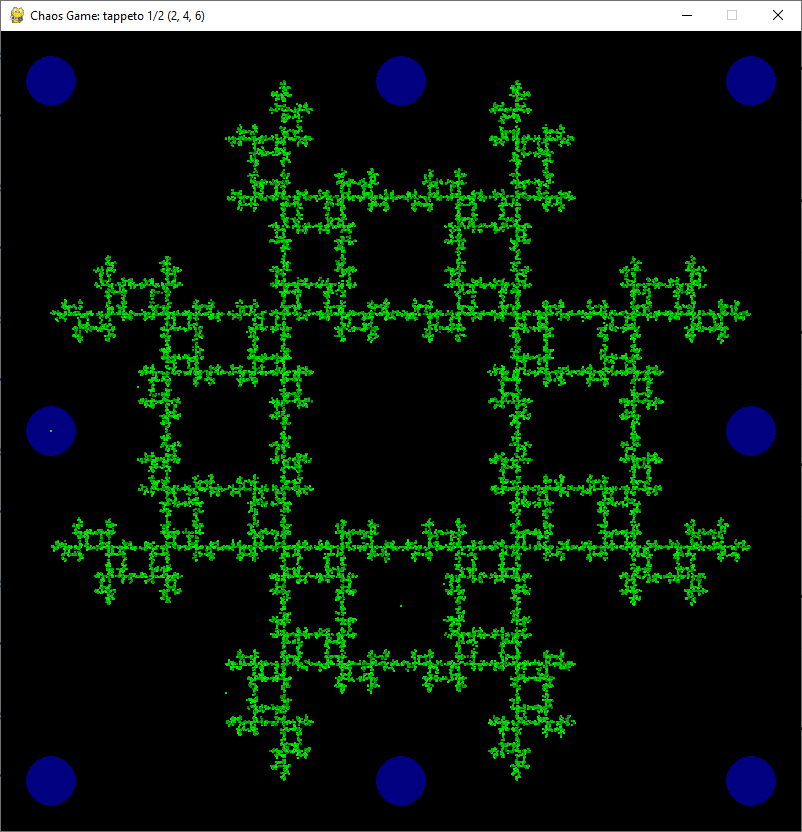
Continua…
Ci sono ancora centinaia di possibilità.